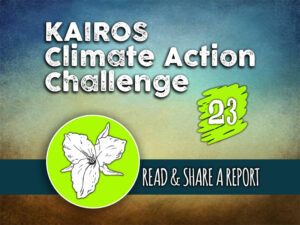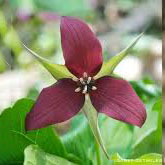Sacrifice Zones

Given the onset of nearly irreversible climate change, the irony is that many areas of the Global South where people have contributed substantially less to greenhouse gas emissions are comparatively more impacted. This inequality is linked to environmental racism and the existence of sacrifice zones. As we learned last week, environmental racism is the system that discriminates against communities where most residents are Black, Indigenous, and people of colour by harming the air, land, water and biodiversity. A sacrifice zone is a geographic area inhabited by people of colour that has been permanently impaired by environmental damage.
Today we look at this phenomenon in the Niger Delta of Nigeria and the work of Oilwatch Africa in holding government and industry account for the impacts of fossil fuel extraction in that region.
Read Ecological devastation of the Niger Delta by oil extraction should be a concern to the whole world by KAIROS Africa Partnerships Coordinator, Jim Davis.
Oilwatch Africa, a KAIROS funded partner for well over a decade, engages in advocacy across the continent of Africa to hold governments, industry and the public to account for the contribution of fossil fuel extraction to local ecological destruction and global warming. Oilwatch Africa has taken a special interest in the Niger Delta in Nigeria, home to West Africa’s most concentrated freshwater wetlands and aquatic ecosystem. The Niger Delta, which supports the life and livelihoods of many local communities and the sub-regional economy as a whole, is put at substantial risk by the impacts of large-scale oil extraction.
TODAY’S RESOURCE
Learn more about the work of Oil Watch Africa and read the OWA statement from August 2020, Africa must not Drown in Crude Oil.
TODAY’S ACTION
Today’s action is to read and amplify a report or article. We offer some suggestions below:
- Gender, Climate and Security, UNDP (2020)
- Feminist Climate Finance Brief – Recommendations for Canada’s Climate Finance Pledge, WEDO (2020)
- Evicted by Climate Change – Confronting the Gendered Impacts of Climate-Induced Displacement, CARE (2020)
 |
Today’s flower on the |
